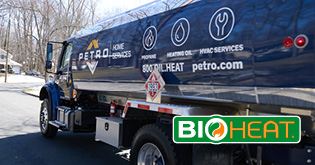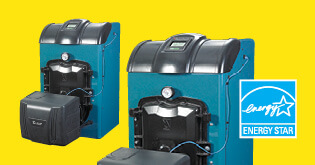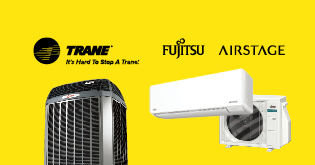- My Account:
- Sign In
- Register
- Make Payment

Plumbing glossary: Plumbing terms you need to know as a homeowner.
Knowing all the parts that keep your house running can be challenging. As a new homeowner, or seasoned veteran, it’s essential to know a few terms and the accompanying items to keep your house running smoothly. This plumbing glossary will outline 54 essential plumbing terms you need to know to keep your plumbing running smoothly, as well as make you articulate about any future issues that may arise.
54 Plumbing terms you need to know.
Access panel
An access panel is an opening in a wall or ceiling near a fixture. The access panel offers access to work on plumbing or electrical systems.

Angle stop
An angle stop is a shutoff valve between the water supply and plumbing fixture. It is used to shut off water flow while you repair the connected item.
Anode rod
An anode rod is located inside the water heater. The anode rod protects the water tank from corrosion due to magnesium or aluminum.

Backwater valve
A backwater valve prevents disposed sewage from reentering the home.
Ball check valve
A ball check valve is a type of backflow preventer. The ball check valve is placed on a water line to direct water flow in one direction.
Ballcock
The ballcock controls the flow of water in a gravity-operated toilet tank. When the toilet is flushed, the circular float will drop and open the ballcock. This results in water being distributed in the tank. As the water rises, the float rises to the level that shuts of the ballcock.

Branch
A branch is any secondary part of the drain system; also, referred to as the lateral line.
Branch vent
A branch vent connects vents with a vent stack.

Check valve
The check valve is a type of backflow prevent. The check valve is installed on a pipe to allow water flow in one direction.
Cleanout plug
The cleanout plug is in a trap or drain pipe. The cleanout plug offers access to the drain line for clearing any blockage in the pipes.
Closet
Synonym for a toilet, also referred to as a “water closet”

Closet auger
A closet auger is a flexible rod that is used to access a toilet’s trap to remove any clogs.
Closet bend
The closet bend connects the closet flange to the toilets drain.

Closet flange
The closet flange is a ring that anchors the closet bend to the floor. The closet flange also includes closed bolts that secure the toilet in place.
Diaphragm
The diaphragm is a flexible membrane that helps regulate water flow and build up within a valve.
Dip tube
The dip tube sends cold water to the bottom of the water heater tank.
Drip leg
The drip leg, also known as the “sediment trap”, is a pipe installed at the lower segment on a gas line. The capped off section collects condensation and debris.

Escutcheon
The escutcheon is a protective cover under the faucet handle that masks the fixtures hole.
Fall/Flow
The fall, also known as flow or pitch, refers to the slope needed to create proper drainage in pipes.
Fixture
A fixture refers to the plumbing device that provides water and/or disposal. Common fixtures in plumbing are toilets, sinks and showers.

The flapper valve connects the water tank and toilet bowl. When the flapper valve opens, water flows from the tank into the bowl.
Float ball
The float ball is the plastic ball attached to the ballcock. The rise and fall of water in the tank is determined by the float ball’s placement.
Floor flange
The floor flange, also known as a closet flange, connects a toilet to the sewer line.

Gas cock
The gas cock on a main gas line allows for the gas to be shut off.
Gate valveThe gate valve controls the flow of liquids in pipes.

Gravity operated toilet
A gravity operated toilet relies on downward pressure of water in a toilet tank to flush. Gravity operate toilets often have ballcocks in their tank.
Gray water
Gray water is any waste water that comes from common fixtures, but not toilets.
Horizontal branch
The horizontal branch runs from plumbing fixtures to a waste stack.
Horizontal run
Horizontal run is the distance liquid travels from the entry point and exit of a pipe.

Hose bib
A hose bib is a common outdoor faucet.
Main line
The main line supplies water from the water company’s meter at street level to the branch pipes around your home.

Nipple
A nipple is a short pipe that connects couplings and other fittings.
Power flush system
The power flush system compresses water to provide a pressurize flush. This system is often found in business and commercial settings.
PRV or pressure reducing valve
PRV, or pressure reducing valve, is a special valve that is installed directly on the main water line. The PRV constrains the amount of water entering from the water companies supply to normalize water pressure for home use.
PVC
PVC pipes are sturdy plastic pipes that are used for drainage, waste and vent systems.
Rim holes
Rim holes are a series of small holes around the toilet bowl. Water flowing from the rim holes washes over the surface of the bowl to refill the toilet bowl.

Saddle valve
The saddle valve is a mounted pipe run by a clamping device. The saddle valve is used to make quick connections between low-demand devices.
Septic tank
A septic tank is a small sewage treatment system for homes with no connection to local sewage pipes. Septic refers to the bacteria that decomposes the waste inside the tank.
Straight stop valve
A straight stop valve is a straight shutoff valve used to close off water supply during repairs.

Sump pump
A sump pump is used in basements that flood often. The sump pump sits in a pit that accumulates the water, where it pushes the water outside the home.
Supply line
A supply line is a metal or plastic line that carries water directly from the main line into a plumbing fixture.
T&P valve or temperature and pressure valve
The temperate and pressure relief valve is used to safely release excess heat or pressure in a water tank.
Tailpiece
The tailpiece is a pipe that runs between a fixture and trap.

Trap
The trap is a curved section of drain line that prevents sewer odor from entering your home. All plumbing fixtures have a “P” trap, except for a toilet that has an “S” trap.
Trapway
The trapway connects the toilet bowl to a waste outlet. The size of the trapway, also known as the passageway, influences clogging.
Trip lever
The trip lever is the flush handle and actuating arm on a toilet tank. The trip lever is attached to the flapper, which results in the toilet flushing. The trip lever can also refer to the drain in a tub.
Vent
The vent is a pipe that allows air into the drain system.
Vent stack
The vent stack, also known as a stink pipe, releases gas and odors outside the home.
Water hammer
The water hammer is a loud noise and vibration associated with pipes being turned on or off. The water hammer is caused by a sudden surge, or halt, of water in the pipes.
Now that you’ve reviewed the plumbing glossary, you can now effectively express any issues that may arise the next time you reach out to the professionals to fix your ballcock, sump pump or flapper valve. When you do finally reach out to the pros, make sure to reach out to Petro, the most trusted plumbing service provider.*
*plumbing services not available in all areas
Petro Home Services is proud to not only serve communities in DC, CT, MA, MD, NJ, NY, PA, and RI but we also proudly acknowledge the skills and experience of our expert team behind all resources. With insights on topics ranging from heating oil facts to common air conditioning questions, you can rely on Petro Home Services for facts and information to help you understand more about your heating, cooling and home comfort needs. This article and all articles on the Petro Home Services website have been approved by our team of home service experts.






